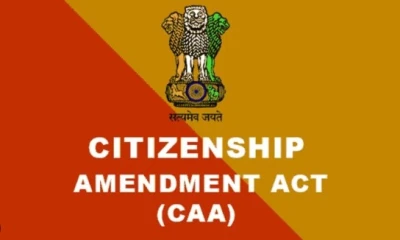In a significant development, the Indian Government has announced new rules under the Citizenship (Amendment) Act, 2019 (CAA), making it easier for minorities from Pakistan, Bangladesh, and Afghanistan to seek Indian citizenship. The rules, effective immediately, state individuals belonging to Hindu, Sikh, Buddhist, Jain, Parsi, or Christian communities from these countries can apply for Indian citizenship without presenting a valid passport or visa. Individuals, who migrated to Bharat before December 31, 2014 are eligible.
The rules stipulate that any document proving the lineage of the applicant – parents, grandparents, or great-grandparents – from the mentioned countries would suffice to establish nationality. Additionally, instead of a visa, a certificate issued by an elected member of a local body will be acceptable. This move aims to benefit thousands of non-Muslim migrants, who were either residing in Bharat illegally or on long-term visas.
Home Minister Amit Shah expressed satisfaction with the new rules, highlighting that they fulfil the commitment to minorities persecuted on religious grounds in the neighbouring countries. The CAA had sparked protests earlier, with concerns about its potential impact on Muslim citizenship when combined with the National Register of Citizens (NRC) enumeration plan.
Despite opposition from many States, the updated rules limit the States’ role in granting citizenship, streamlining the process for applicants. The CAA stated the mentioned communities faced religious persecution in their countries of origin, allowing eligible individuals to apply for Indian citizenship with a reduced naturalization period from 11 to 5 years.
Changes in Evidence Requirements
The revised rules have streamlined the evidence required for citizenship, eliminating the necessity of a foreign passport and residential permit. Instead, a variety of documents, including birth or educational certificates, identity documents, licenses, land or tenancy records, or any document proving the applicant’s citizenship in the mentioned countries, can now be submitted.
The requirement of a certificate from an educational institution attesting to the applicant’s knowledge of specific languages has been removed. A simple declaration of language proficiency is now sufficient.
To prove entry into Bharat before December 31, 2014, a list of 20 admissible documents has been provided, including Aadhaar cards, driving licenses, ration cards, utility bills, and marriage certificates. The previous necessity of a visa, among other documents, has been eliminated.
These changes mark a significant shift in the citizenship application process, aiming to make it more accessible for eligible individuals from neighbouring countries seeking refuge and a new home in Bharat.

















